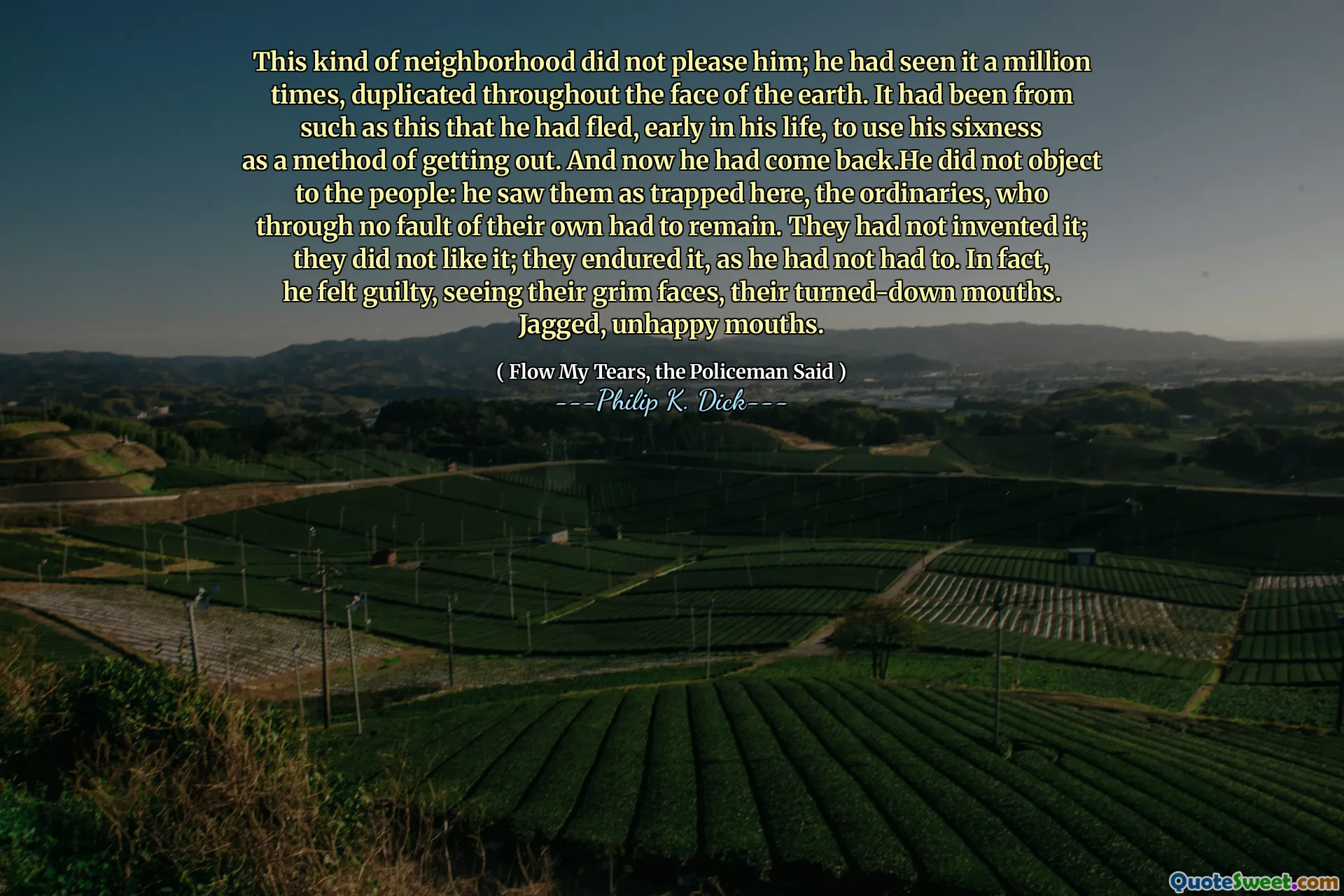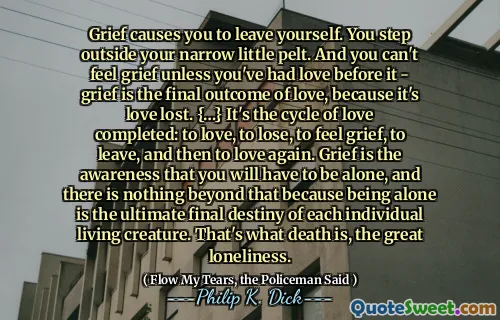
这种社区没有取悦他。他看到了一百万次,在整个地球上复制了。他的生命很早就逃离了这样的方法,将自己的六度作为一种出门的方法。现在他回来了。他没有反对人民:他把他们视为被困在这里的,那些没有自己的过错必须留下来的准教徒。他们没有发明它;他们不喜欢它。他们忍受了它,因为他不必这样做。实际上,他看到他们严峻的面孔,张开的嘴巴感到内gui。锯齿状,不开心的嘴。
(This kind of neighborhood did not please him; he had seen it a million times, duplicated throughout the face of the earth. It had been from such as this that he had fled, early in his life, to use his sixness as a method of getting out. And now he had come back.He did not object to the people: he saw them as trapped here, the ordinaries, who through no fault of their own had to remain. They had not invented it; they did not like it; they endured it, as he had not had to. In fact, he felt guilty, seeing their grim faces, their turned-down mouths. Jagged, unhappy mouths.)
叙述者反思了他对某个社区的蔑视,由于其在世界范围内的重复性而感到深刻的熟悉感和不适感。这是他曾经逃脱的地方,利用他的独特能力摆脱了这个平凡的存在的范围。现在返回,他面临着怀旧的感觉,并与周围的相同性的抵抗力混合在一起。
尽管他厌恶了环境,但他对居住在环境的人们表示同情,并承认他们是他们处境的受害者。他们是他们没有选择和无法改变的生活中捕获的“白道”,这引起了他内心的罪恶感。他们的表情反映了悲伤和辞职,象征着被困在他设法逃脱的周期中的情感损失。通过他们严峻的面孔,他看到了生活的痛苦,而不是真实地生活。











